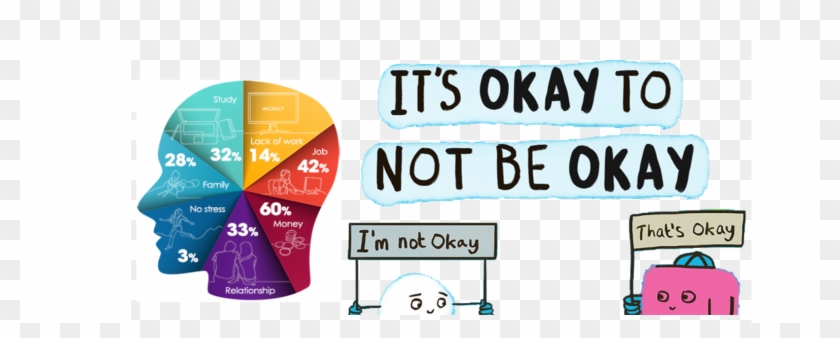Unlocking the Secrets of Inner Resilience: Nurturing Psychological Health
Welcome to a fascinating exploration of one of the most vital aspects of our overall well-being – psychological health. In today’s fast-paced and unpredictable world, it is imperative that we equip ourselves with the tools and knowledge to nurture our inner resilience and promote psychological well-being. Our mental and emotional health plays a fundamental role in our ability to cope with adversity, bounce back from setbacks, and navigate the complexities of life with confidence and grace.
Psychological health encompasses a wide range of factors, including our emotional intelligence, self-awareness, and ability to manage stress. It is not merely the absence of mental illness, but rather a state of flourishing and optimal functioning. When we prioritize our psychological well-being, we can cultivate inner resources that contribute to our overall resilience and enable us to face life’s challenges head-on.
Over the course of this article, we will delve into the secrets of unlocking and nurturing our inner resilience, helping us build a solid foundation of psychological health. From understanding the importance of self-care and setting boundaries to fostering healthy relationships and cultivating a growth mindset, we will explore practical strategies that can empower us to navigate the ups and downs of life with strength and grace.
Join us as we embark on this enlightening journey, unraveling the mysteries of psychological health and uncovering the tools and techniques that can enhance our well-being. Get ready to unlock the secrets of inner resilience and embark on a path towards a more fulfilling and thriving life.
Understanding Psychological Health
Psychological health refers to the overall well-being of an individual’s mental and emotional state. It encompasses a person’s ability to cope with daily stressors, maintain a positive mindset, and adapt to challenging situations. Developing and nurturing psychological health is crucial for leading a fulfilling life.
A key aspect of psychological health involves developing self-awareness and understanding one’s emotions and thoughts. This includes recognizing and addressing negative patterns of thinking or behavior that may hinder personal growth. By cultivating self-awareness, individuals can gain a deeper understanding of their strengths, weaknesses, and areas for improvement, paving the way for positive change.
Furthermore, maintaining healthy relationships and social connections greatly contributes to psychological well-being. Human beings are social creatures, and a sense of belonging and connection with others is essential for our mental health. Building and nurturing meaningful relationships fosters emotional support, promotes personal growth, and helps individuals navigate challenges more effectively.
Lastly, practicing self-care is integral to maintaining psychological health. This involves engaging in activities that promote relaxation, stress reduction, and overall well-being. Regular exercise, proper nutrition, adequate sleep, and engaging in hobbies or activities that bring joy and fulfillment all contribute to a sense of balance and inner resilience.
In conclusion, psychological health plays a vital role in our overall well-being. Understanding the various factors that contribute to psychological health allows individuals to actively work towards nurturing it. By developing self-awareness, fostering positive relationships, and engaging in self-care, we can unlock the secrets of inner resilience and cultivate a healthier and more fulfilling life.
Building Resilience Through Mindset
In order to nurture our psychological health, it is essential to cultivate a resilient mindset. A resilient mindset allows us to navigate life’s challenges with grace and determination, bouncing back from setbacks and maintaining a positive outlook. Building resilience is within our grasp and can be achieved through a combination of self-awareness, adaptability, and gratitude.
Self-awareness serves as the foundation of a resilient mindset. By understanding our thoughts, emotions, and behaviors, we gain the power to respond to challenges in a constructive manner. Developing self-awareness involves slowing down, taking time for introspection, and observing our mental and emotional states. This practice allows us to recognize patterns of thinking or reacting that may not serve us, empowering us to make conscious choices that promote our well-being.
Adaptability is another key aspect of building resilience. Life is full of unpredictability, and being able to adapt to changing circumstances is crucial for maintaining psychological health. Cultivating a flexible mindset allows us to adjust our plans, perspectives, and expectations, embracing the unknown with openness and curiosity. By embracing change and welcoming new experiences, we build resilience and foster a greater sense of inner strength.
Practicing gratitude is a powerful tool for nurturing a resilient mindset. Gratitude shifts our focus from what is lacking in our lives to the abundance that surrounds us. It reminds us to appreciate the small joys, moments of connection, and acts of kindness that often go unnoticed. By regularly expressing gratitude, whether through journaling, verbal affirmations, or acts of service, we cultivate a positive outlook and enhance our ability to bounce back from adversity.
In conclusion, building resilience through mindset is an essential component of nurturing our psychological health. By cultivating self-awareness, adaptability, and gratitude, we empower ourselves to face life’s challenges with resilience and maintain a sense of inner strength.
Practical Strategies for Nurturing Inner Resilience
-
Foster Positive Relationships: Surrounding yourself with supportive and empathetic individuals is crucial for nurturing inner resilience. Cultivate meaningful connections with family, friends, and mentors who provide encouragement, understanding, and emotional support during challenging times.
-
Practice Self-Care: Engaging in self-care activities helps maintain psychological health and enhances resilience. Take the time to prioritize your well-being by engaging in activities that bring you joy and relaxation. This could involve practicing mindfulness, exercising regularly, getting sufficient sleep, and pursuing hobbies or interests that bring you fulfillment.
-
Develop Coping Mechanisms: Building effective coping mechanisms can significantly contribute to inner resilience. Identify healthy coping strategies that work well for you, such as journaling, practicing gratitude, deep breathing exercises, or engaging in creative outlets. These mechanisms can help you navigate through adversity and bounce back from setbacks.

Remember, nurturing inner resilience is an ongoing process that requires patience and self-compassion. By implementing these practical strategies into your life, you can unlock the secrets of psychological health and strengthen your ability to overcome life’s challenges.
